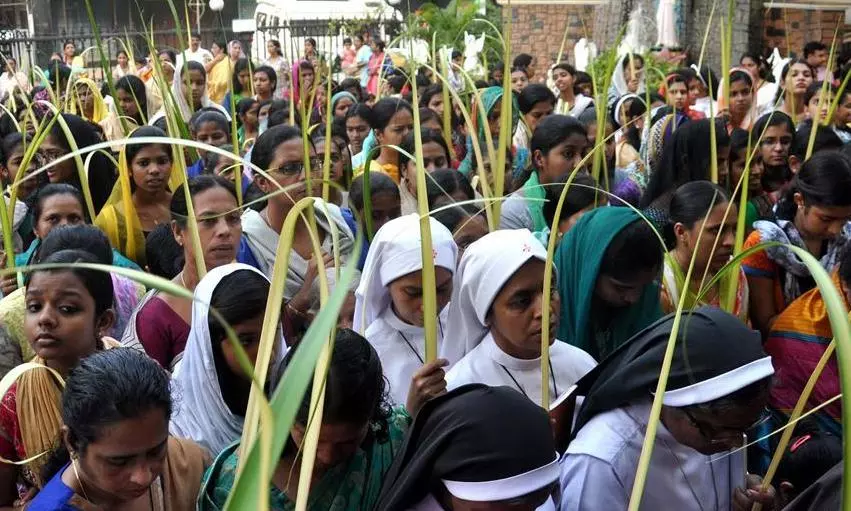
Delhi denying permission for procession 'shocking': Christian group
text_fieldsRepresentational photo.
New Delhi: Delhi administration, which is ruled by the BJP, has denied permission to the Christian community to conduct the Palm Sunday procession, which has been held for the past 15 years, on April 13. Palm Sunday marks the start of Holy Week for Easter, and it falls a week ahead every year. The development has caused deep disappointment among the Christian community.
The Catholic Association of the Archdiocese of Delhi (CAAD) expressed its “deep shock and anguish” and called the move “unfair” and “shocking”, The Wire reported.
The ‘Way of the Cross’ procession was denied permission citing ‘law and order and traffic concerns’, Delhi Police had informed.
CAAD said that the police’s justification is difficult to accept since it had granted permissions to other communities and political groups for similar processions and rallies even during peak hours working days, while the Christian procession was planned on a Sunday.
The Wire highlights that this denial occurred only last week after Delhi Chief Minister Rekha Gupta attended a Shobha Yatra procession on the occasion of Ram Navami in the city’s Khyala area.
She had said, “Why not paint Delhi saffron so that every person prospers and the city marches forward on the path of progress,” PTI quoted her.
CAAD wondered whether the constitutional right to religious freedom of Christians was being equally upheld like other communities.
CAAD said that the Way of the Cross procession in Delhi involved walking from the St Mary’s Church in Old Delhi to the Sacred Heart Cathedral in New Delhi’s Gole Market area. It said that the annual Way of the Cross had been conducted with utmost discipline, peace and full cooperation with the authorities for more than a decade. There were no incidents of traffic disruption or law and order issues in connection with the event. The denial of permission this year feels biased and unfair, casting a shadow on the principles of equal treatment and religious freedom, CAAD said.






















